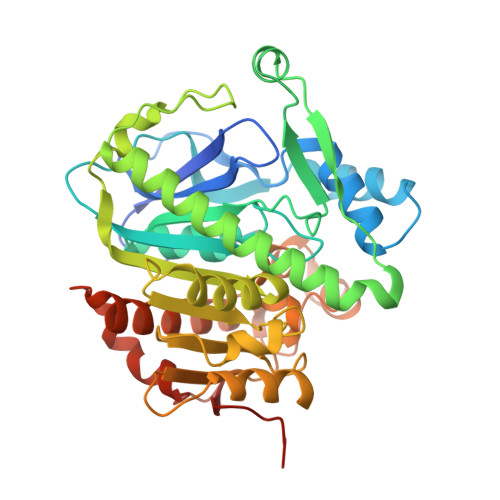Fragment-Based Approach to the Development of an Orally Bioavailable Lactam Inhibitor of Lipoprotein-Associated Phospholipase A2 (Lp-PLA2).
Woolford, A.J., Day, P.J., Beneton, V., Berdini, V., Coyle, J.E., Dudit, Y., Grondin, P., Huet, P., Lee, L.Y., Manas, E.S., McMenamin, R.L., Murray, C.W., Page, L.W., Patel, V.K., Potvain, F., Rich, S.J., Sang, Y., Somers, D.O., Trottet, L., Wan, Z., Zhang, X.(2016) J Med Chem 59: 10738-10749
- PubMed: 27933945
- DOI: https://doi.org/10.1021/acs.jmedchem.6b01427
- Primary Citation of Related Structures:
5LYY, 5LZ2, 5LZ4, 5LZ5, 5LZ7, 5LZ8, 5LZ9 - PubMed Abstract:
Lp-PLA 2 has been explored as a target for a number of inflammation associated diseases, including cardiovascular disease and dementia. This article describes the discovery of a new fragment derived chemotype that interacts with the active site of Lp-PLA 2 . The starting fragment hit was discovered through an X-ray fragment screen and showed no activity in the bioassay (IC 50 > 1 mM). The fragment hit was optimized using a variety of structure-based drug design techniques, including virtual screening, fragment merging, and improvement of shape complementarity. A novel series of Lp-PLA 2 inhibitors was generated with low lipophilicity and a promising pharmacokinetic profile.
Organizational Affiliation:
Astex Pharmaceuticals , 436 Cambridge Science Park, Milton Road, Cambridge CB4 0QA, United Kingdom.
















